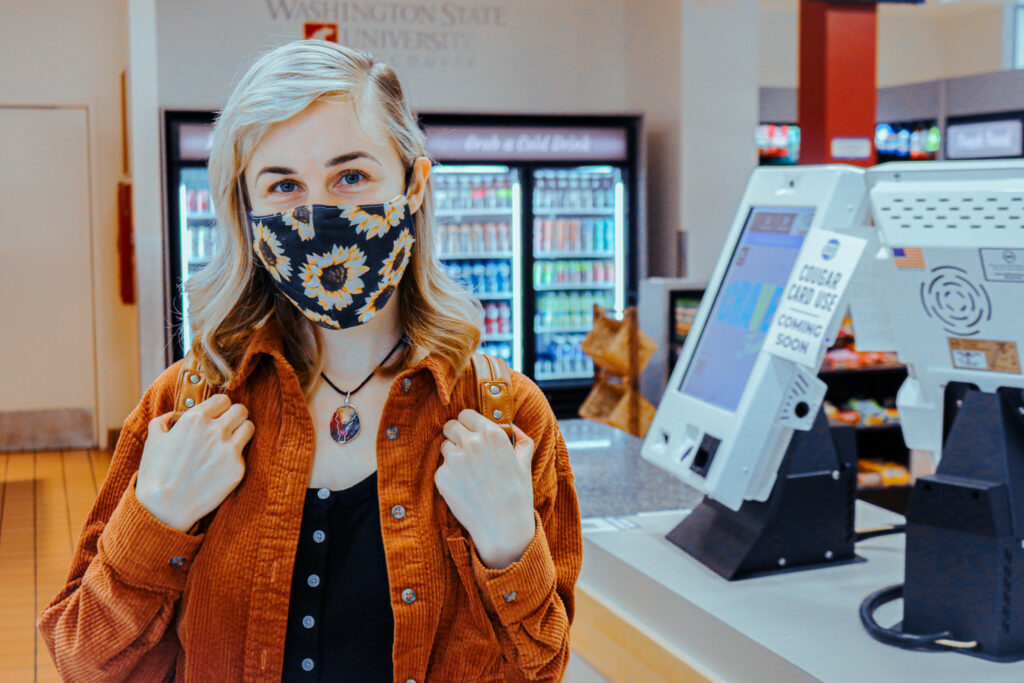After permanently closing down operations last year when the COVID-19 pandemic was at its peak, WSU Vancouver’s cafeteria has a new and improved micro-market, commemorating a fresh start to the year’s fall semester. Collaborating with Crave Fresh Market to open the kiosk in the cafeteria building, campus facilities intend to successfully replace the traditional cafe with a self-served meal system.

Serving the southeast Washington community for over eight years, Crave Fresh Market is a family-owned business operated by Corwin Beverage Company, providing unique food services to local businesses. Being a fourth-generation company, founders Laura and Kyle Kendall moved to Vancouver, Washington, and started their business in 1941. Supporting local establishments around the Pacific Northwest, the company’s nearly 70 years of experience lends itself to partnerships with organizations like WSU Vancouver that need food options for students and staff.
Brian Bortvedt, chief financial officer at Corwin, says that during the pandemic, many businesses and universities have started trending towards micro-markets, which work as self-serve kiosks to provide a variety of meal options to students, staff and faculty. The new area on campus offers snacks, soft drinks, hot coffee and packaged foods like sandwiches and veggie trays.
Although there are decreases in jobs for student servers and cashiers in the cafeteria, the option deems safer in light of health precautions to prevent the spread of COVID-19 within the WSU Vancouver community. Now that classes are being held in person for the first time in over a year, the campus atmosphere is bound to be geared more towards safety, rather than socializing.
“The thing that sets [the micro-market] apart is the ability to adapt and adjust. …We want this to be the students’ market, and we are going to work to make it the best experience for students,” Bortvedt said.
Some students, however, are apprehensive of the micro-market’s accessibility. Tessa Hensley, senior majoring in psychology, shares concerns about the food options available to students having food restrictions or allergies. Additionally, she says Crave Fresh Market takes away from the experience of having a quality cafeteria on campus with faculty and students preparing meals.
“I’m glad they still have something to offer students during these crazy uncertain times. Once we find out whether we can stay in person for classes [indefinitely], I think they should invest in a better cafeteria. We have such a nice campus, and the cafeteria is the only thing lacking,” Hensley said.
For those who find the kiosk lacking in choices, Crave Fresh Market presents QR codes, displayed on their machines, for students to scan and input a survey about their experience.
As some might think the options are somewhat limited, students, nevertheless, have opportunities available at the micro-market to grab a quick bite. With an effort to replace WSU Vancouver’s cafeteria culture, the campus anticipates replenishing quality food service offered by Crave Fresh Market.

Arabelle is a senior studying English at WSU Vancouver.
